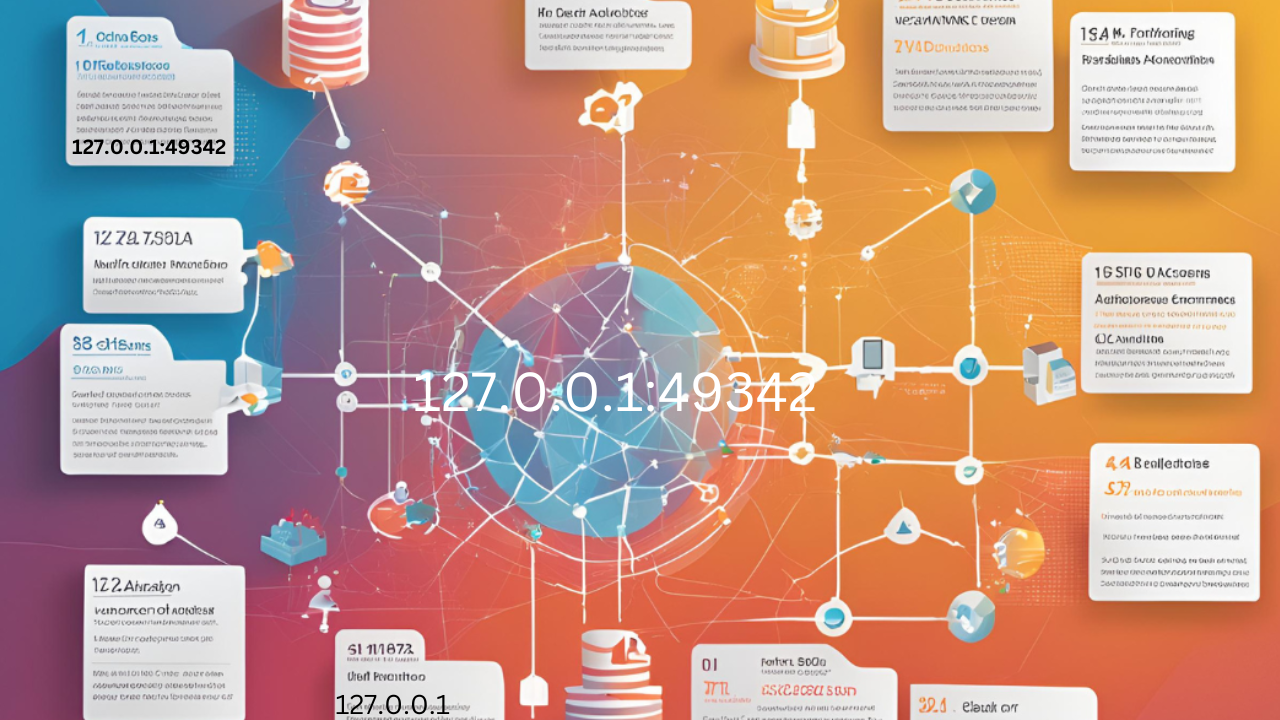Understanding specific addresses and ports is crucial in the vast world of networking and computing. One such address that stands out is 127.0.0.1:49342. This combination of an IP address and a port number holds immense importance for developers, network administrators, and even curious tech enthusiasts. But what does it mean, and how does it function in local communication? Let’s dive into this topic step by step.
What is 127.0.0.1?
The IP address 127.0.0.1 is commonly called the “loopback address.” It is a unique address reserved for the local machine, allowing a computer to communicate with itself. Here’s why it matters:
- Self-Referencing: When a computer sends data to 127.0.0.1, it returns to itself. This is useful for testing purposes without involving external devices or networks.
- Network Isolation: The loopback address ensures that data remains confined within the device, offering a safe testing environment.
- Default Localhost: In many systems, 127.0.0.1 is synonymous with ” localhost,” which is the default domain name for local servers.
Understanding Port 49342
A port number, like 49342, is a unique identifier for a service or application running on a system. Think of it as a virtual door on your computer that applications use to send and receive data.
- Why Port Numbers Matter: They allow multiple services to operate simultaneously on a single device by assigning each service its unique port.
- Dynamic Nature: Ports like 49342 are often dynamically assigned. This means they are allocated as needed, usually for temporary tasks.
- Application-Specific Use: When paired with 127.0.0.1, port 49342 serves a particular application or service running locally.
The Role of 127.0.0.1:49342
The combination of 127.0.0.1 and 49342 represents a specific service or application on a local machine. Here’sHere’s how it functions:
- Local Testing Environment:
- Developers use 127.0.0.1:49342 to test web applications, APIs, or other services locally. It eliminates the need for an external server, making the testing process faster and more secure.
- Debugging and Troubleshooting:
- When debugging network-related applications, a local loopback address like 127.0.0.1:49342 ensures the issue lies within the application itself, not external factors like the internet or network infrastructure.
- Secure Communication:
- This address and port combination is inherently secure since it is connected to the local machine. External devices cannot access it, preventing unauthorized connections.
Real-World Applications
Web Development
When creating websites, developers often use local servers for testing. By entering 127.0.0.1:49342 into a browser, they can view and interact with their web application as if it were live without exposing it to the internet.
Software Development
Developers use addresses like 127.0.0.1:49342 to test features like data transfer, authentication, or database connectivity within their applications. This ensures that the core functionalities work perfectly before deployment.
Networking Tools
Tools like SSH, FTP, or custom remote access software might utilize specific ports on 127.0.0.1 to establish local connections for testing or configuration purposes.
Advantages of Using 127.0.0.1:49342
- Isolation: It provides a controlled environment perfect for experimentation and testing.
- Efficiency: Developers can quickly test changes without delays caused by internet-based servers.
- Security: Since the loopback address is inaccessible outside the local machine, it minimizes risks.
- Versatility: It can be used for various purposes, from web development to troubleshooting network configurations.
Frequently Asked Questions
Is 127.0.0.1:49342 Always Safe?
Yes, as long as it’s used locally. However, if an application running on this address is poorly configured, it could lead to vulnerabilities if exposed to external networks.
Why Use Port 49342 Specifically?
Port numbers are usually assigned dynamically or chosen based on application requirements. A program might select 49342 for temporary or specific purposes.
Can I Access 127.0.0.1:49342 From Another Device?
No. The loopback address (127.0.0.1) is strictly local to the device on which it resides. Other devices on the network cannot access it.
Best Practices for Using 127.0.0.1:49342
- Monitor Port Usage: Ensure no unauthorized applications use port 49342 on your machine.
- Test Securely: Always use trusted applications and tools when working with 127.0.0.1:49342 to avoid security risks.
- Close Ports When Not in Use: If you no longer need an application running on 127.0.0.1:49342, stop the service to free up the port.
Conclusion
The combination of 127.0.0.1:49342 may seem technical, but it plays a vital role in local development and testing. This unique pairing of a loopback address and a port number ensures that developers, network administrators, and even casual users have a secure, efficient, and reliable way to work within their local systems. Whether you’re a seasoned developer or just diving into the world of networking, understanding 127.0.0.1:49342 is a step towards mastering the intricacies of modern computing.
By responsibly leveraging its capabilities, you can create, test, and troubleshoot with confidence while keeping your workflows efficient and secure.















